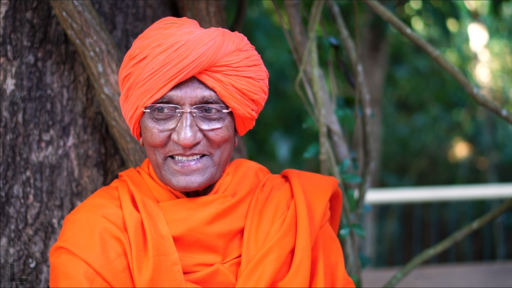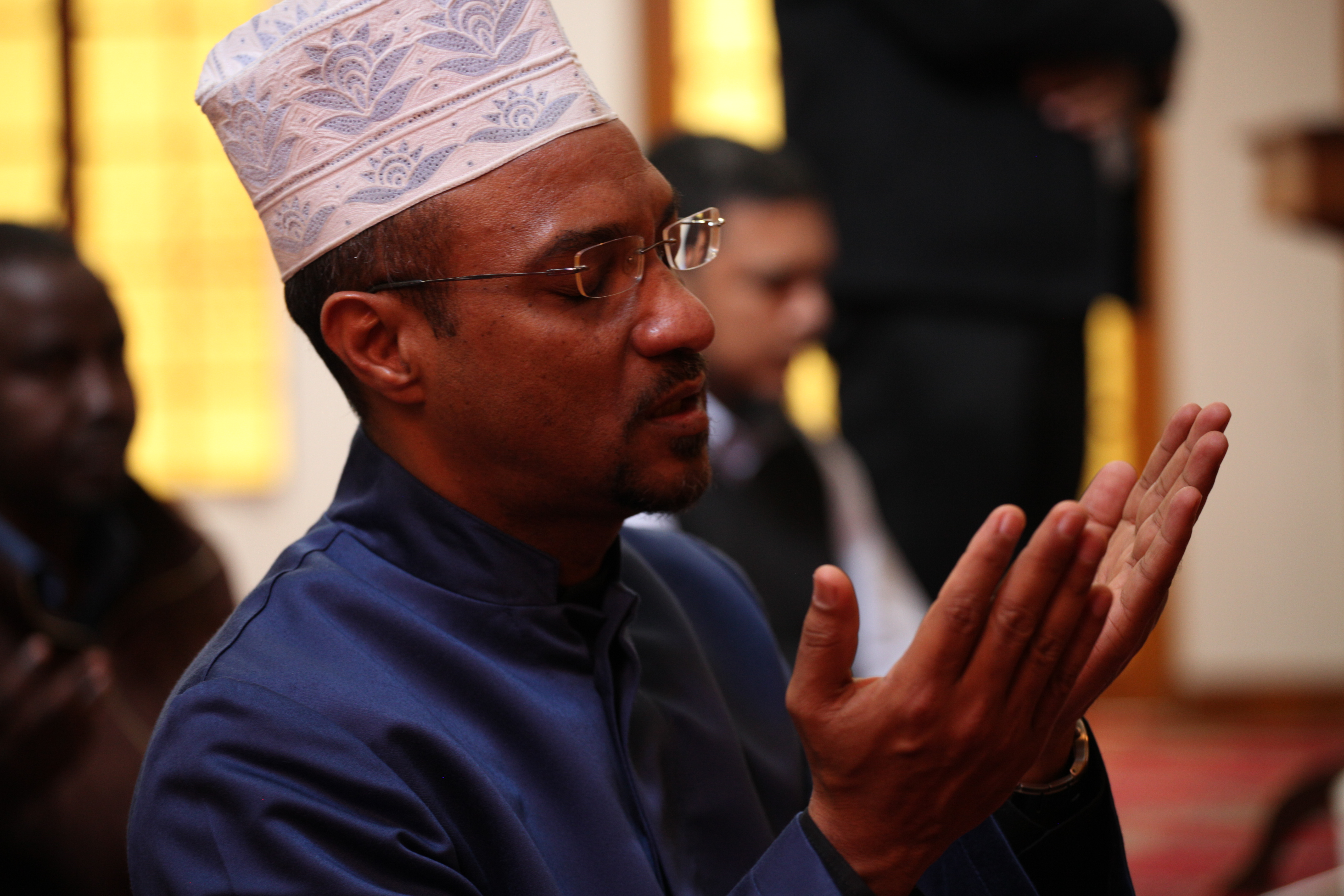
It is with deep sadness that I received the news of the passing of Swami Agnivesh, one of India’s foremost Hindu religious leaders dedicated to interfaith harmony and social justice activism. Swami Agnivesh died in a New Delhi hospital on September 11, 2020, 10 days away from his 81st birthday.
Swami Agnivesh was President Emeritus of the World Council of Arya Samaj, a Hindu Reform Movement. In 2004 he was a recipient of the Right Livelihood Award, Sweden’s “Alternative Nobel Peace Prize” as well as the Swiss “Freedom and Human Rights Award” for his social justice work. He also served as chairperson of the United Nations Trust Fund on Contemporary Forms of Slavery from 1994–2004. At the time of his death he was serving on the boards of several global interreligious bodies.[1]
I first met Swami Agnivesh in 1999 on one of his visits to South Africa when he unexpectedly attended a Friday congregational (jumu`ah) service at the Claremont Main Road Masjid where I was preaching. Swami Agnivesh shared a special relationship with Swami Vedanand Saraswati, the spiritual head of the Arya Samaj South Africa, and was thus invited to visit South Africa several times. It was on one of these visits that he requested to be taken to a local mosque and ended up at our Friday congregational service. His presence at our mosque service was symbolic of Swami Agnivesh’s life-long dedication to interreligious solidarity.
In 2005 I had the privilege of interviewing him for my doctoral dissertation at his humble office situated in central Delhi, on Jantar Mantar Road, the site from where all social justice protests against the Indian parliament began. Jantar Mantar Road was the equivalent of London’s Hyde Park, all you needed was a cause, a placard, and a voice. Coincidently, on my way to his office to conduct my third interview with Swami Agnivesh I ran into one such demonstration of a large group of Christians who had gathered to march on the Indian parliament in protest against the alleged killing of two pastors and the carrying out of half a dozen attacks on church targets in recent weeks. During the past two decades I have also encountered Swamiji at several global interreligious events.
Swami Agnivesh was inspired by the teachings of Swami Dayananda Saraswati (d.1883) and his Hindu reform movement, the Arya Samaj, founded in 1875. Some of Swami Dayananda’s beliefs and ritual practices which inspired the Arya Samaj are as follows. He upheld the infallibility of the Vedas, the doctrines of karma (the accumulated effect of past deeds) and samsara (the process of death and rebirth), the sanctity of the cow, the importance of the samskaras (individual sacraments), the efficacy of Vedic oblations to the fire, and programs of social reform. He opposed worship of murtis (images), animal sacrifice, shraddha (rituals on behalf of ancestors), the caste system and the concept of untouchability, and child marriages. The Arya Samaj has worked to further female education and intercaste marriage; built missions, orphanages, and homes for widows; has established a network of schools and colleges; and has undertaken famine relief and medical work.[2] Swami Agnivesh found the rational and reformist approach of the Arya Samaj very attractive and saw it not so much as an institutionalized religious movement but rather “as a revolt against Hindu orthodoxy and the exclusive ideology of Brahmanism” (139). It would be true to say that while Swami Agnivesh was inspired by the religious teachings of the Arya Samaj Hindu reform movement he articulated these teachings in his own unique manner.
Swami Agnivesh also consciously molded his life on the image of the great Indian leader, Mahatma Gandhi (d.1948). One of the foremost contemporary scholars of Hinduism, Anantanand Rambachan, contends that like Gandhi, Swami Agnivesh represents the tolerant and nonviolent (ahimsa) face of Hinduism which has coexisted uneasily with certain versions of Hinduism which sanction violence (himsa) under certain conditions. Swami Agnivesh was a committed nonviolent activist and consciously modeled the many peace marches he undertook throughout his life on the pacifist resistance campaigns of Gandhi. These marches were intended to highlight unjust practices and structural violence in India.
In 1981 Swami Agnivesh founded the Bandhua Mukti Morcha (The Bonded Labour Liberation Front), which worked to liberate millions of bonded laborers in India. In 1987, he led a march from Delhi to Rajasthan to protest against sati, also known as suttee (the immolation of widows on their husbands’ funeral pyres), and campaigned against female infanticide and in support of the entry of “untouchables” into Hindu temples. After the massacre of Muslims in Gujarat in 2002, which occurred in retaliation for the setting alight of a train that caused the death of several passengers, he joined religious leaders in a march to denounce the violence in the affected areas.
Swami Agnivesh was an outspoken critic of the Hindu nationalist movement known as Hindutva (Hindu-ness). This movement is represented socially by the Sang Parivar (a family of Hindu socio-cultural associations) and politically by the Bharatiya Janata Party (BJP). Proponents of the movement define Indian nation and culture as a manifestation of Hindu religious values. They promote social, cultural, and philanthropic activities designed to strengthen Hindu belonging and eschew Indians who embrace what they regard as alien religions such as Islam and Christianity.[3] In a hard-hitting article entitled “Terrorists in Saffron,” originally published in The Indian Express, Agnivesh depicts Hindutva not only as pseudo-Hinduism, but as the internal enemy of Hinduism itself. According to him the Hindutva movement “ . . . drives its inspiration not from Ram, Shiva or Krishna, but from Hitler and Mussolini.”
Swami Agnivesh believed that secularism as a worldview would only be able to succeed in procuring social cohesion and development if it embraced a positive role for spirituality. While he firmly believed in the concept of a secular state, he was opposed to religion being relegated to the private sphere and warned against the inherent dangers in such a position. “The split between politics and religion,” he contended, “has exiled reforming and redemptive values from public life and turned politics into a domain of corruption.” According to Agnivesh, the role of religion in relationship to politics should be that of “infusing it with the core spiritual values which are contained in all religions.” As a result of the unchecked power of the modern secular state Agnivesh feared that the contemporary state had the potential to become an instrument of genocide and carnage. The reasons for this he claimed are twofold. “First, the real actor in state violence is faceless, and second, state sponsored genocide is legitimized and camouflaged by the fact that the government has come to power through democratic means and has the support of the constitution” (167). To counteract this pervasive and awesome power of the state Swami Agnivesh believed that religious activists, as well as other civil society activists, should be vigilant, constantly monitoring the state so as to counterbalance the tendency not to question the exercise of its awesome coercive powers. This is precisely how he conceived of his own role in relationship to politics and the state.
Swami Agnivesh championed what he called social spirituality and tirelessly preached that the biggest challenge facing India and the world was that of poverty and glaring socio-economic inequalities. He argued that the core values of social justice common to all religions were being neglected and thus the vacuum was being filled by communal politics. He disavowed communalism, which he defined as the abuse of narrow religious and/or ethnic identities to incite conflict and violence between people identified as part of different communities. He fought to the bitter end against the communalisation of the Indian state, which he deemed a crime against history.
With the coming to power of the Hindu nationalist party the BJP and its leader Narendra Modi in 2014, Swami Agnivesh redoubled his nonviolent activism against religious intolerance in India. He paid a heavy price for this stance. In July 2018, Swami Agnivesh was violently attacked by a mob allegedly aligned with the BJP youth wing. They claimed he was working hand-in-glove with Christian missionaries to instigate tribal communities in the State of Jharkhand. Swami Agnivesh had come to Pakur to address a tribal festival organized to commemorate a historic land allocation agreement called the Damin-i-Koh, which the state government was disputing. The pro-state protestors accused Agnivesh of “coming to mislead innocent tribals and misguide them against the state at the behest of Christian missionaries.” Agnivesh claimed that the attack was state-sponsored and warned that “fascist tendencies were getting stronger by the day in India.” In the last few years of his life he repeatedly called on progressive movements in India to work much harder in fighting fascist tendencies not only at the political but also at the social level.
A Financial Times journalist has usefully described the powerful impact of Swami Agnivesh’s courageous campaign against Hindu nationalism as follows: “[They] feel the gentle lash of Swami Agnivesh’s tongue much more keenly than criticism from any secular or minority opponent.” May the indomitable spirit and prophetic legacy of Swami Agnivesh live on and continue to contribute to making India and the world more just and humane.
[1]For a detailed account of the life journey of Swami Agnivesh visit his official website at: http://swamiagnivesh.com/.
[2] For a useful introduction to the Arya Samaj see Lala Lajpat Rai, The Arya Samaj: An Account of its Origins, Doctrines, and Activities, With a Biography Sketch of the Founder.
[3] For an in depth analysis of the ideals and emergence and the Hindutva movement see The Hindu Nationalist Movement and Indian Politics 1925 to the 1990’s.

